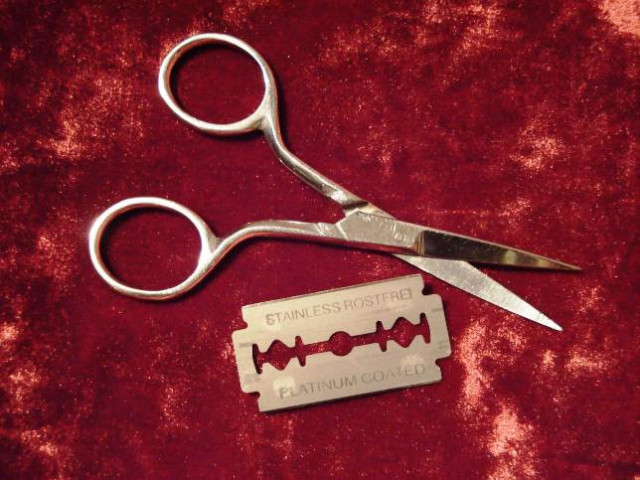“Oh, it’s just a small cut so why are you complaining?”
Those are the words of Filzah Sumartono from AWARE – a group dedicated to women’s rights – when she tries to talk about the taboo subject with members of her community.
It is astounding that people avoid this topic with a wave of the hand, branding it as a “small cut” especially when the effects of such a procedure can be damaging – both physically and mentally.
According to Orchid Project, girls and women can suffer from emotional distress throughout their lives, not to mention having feelings of fear, helplessness, horror and severe pain caused by female genital mutilation (FGM).
It’s also followed by difficulties dealing with painful periods, painful sexual intercourse and childbirth which can lead to further trauma and lower self-esteem for young girls and women which increases the chances of depression and anxiety happening.
The National Health Service (NHS) in the United Kingdom (UK) say that ‘there are no health benefits to FGM’ and causes serious harm which includes constant pain, difficulty or feeling pain during sexual intercourse, repeated infections which can cause infertility, bleeding, cysts and abscesses, difficulties passing urine, depression, flashbacks or self-harm or problems during labour and childbirth which can potentially become fatal for the mother and baby.
It is illegal in the UK and is considered to be child abuse.
But that’s the UK, almost on top of the globe – a wealthy, developed country in the Western world. So, it did come as a huge shock when another developed and wealthy country on the other side of the world is carrying out the procedure; hidden from society: Singapore.
In Singapore, not only is FGM legal and largely hidden, the procedure is carried out on babies.
Filzah Sumartono is one of the 525,000 Muslim Malays in Singapore – that’s 13%, just over one-tenth of the population – who was cut at the age of one month) says that,
“In my own circle of friends who are Malay and Muslim, 100% have been cut.”
When FGM is mentioned, many people – who are aware of what it is – admit that they think of rural areas in Africa, Asia or perhaps the Middle East where it happens. So the thought of FGM happening in a modern and cosmopolitan city with high levels of wealth and education just goes to show how conflicting and challenging it is to have modern ideologies up against cultural practices.
Even though it is practiced by Muslim Malays, the practice has no reference in the Quran and Muslims scholars have said that the idea of mutilating or altering a part or many parts of the human body is against the teachings of the Quran; this has been specifically mentioned in Surah Nisa, verse 4:119.
According to Muslim scholars, this verse forbids man to change what nature has meant it to be, or alter/mutilate any creature – which includes female circumcision.
Nonetheless, for those that claim the opposite, how can something painful and awful like FGM be supported by Islam? A religion that encourages peace and harmony?
The fact that people look to religion when conflicting issues like FGM come up shows how dominant and incredibly challenging cultural traditions have become. They continue to dominate the values and ideologies of many people and have gone unquestioned and unchallenged for so many years. When someone questions or opposes the practice, the backup argument is religion. Claims of people carrying out the practice in Madina (the City of the Prophet) are used as evidence to support the practice. It seems baffling and ironic too that a cultural tradition – no matter how old or deep-rooted it may be – requires the support of religion to persist and continue existing. Perhaps the misunderstanding of religion being the cause begins from there. The same words and misunderstandings repeated again and again begin to take root in people’s minds.
Many people claim that, in the 21st century, humans have come a long way. Women can now vote in most countries. They’re able to go out and work and think that the 21st century and the world we live in is so much better than it was in the 1920s where women rebelled against society’s limitations and fought for the right to seek a divorce to escape neglectful or abusive marriages. The truth is, time has moved forward – there’s no doubt about that. But, the world itself has evolved very little, if at all. A lot of women across the world don’t have the rights and privileges as others may do. While western women may seek a divorce from abusive men, lots of other women cannot. Many girls and women crave to go to school and get an education while girls like me were shaken out of their peaceful sleep and sent to school – a place we took for granted.
The story about female babies being mutilated in 21st century Singapore is shocking and outrageous, but it goes to show how much we’ve yet to accomplish and how primitive some people are even though this is 2016 – nearly 20 years into the millennium.



COMMENTS
Comments are moderated and generally will be posted if they are on-topic and not abusive.
For more information, please see our Comments FAQ